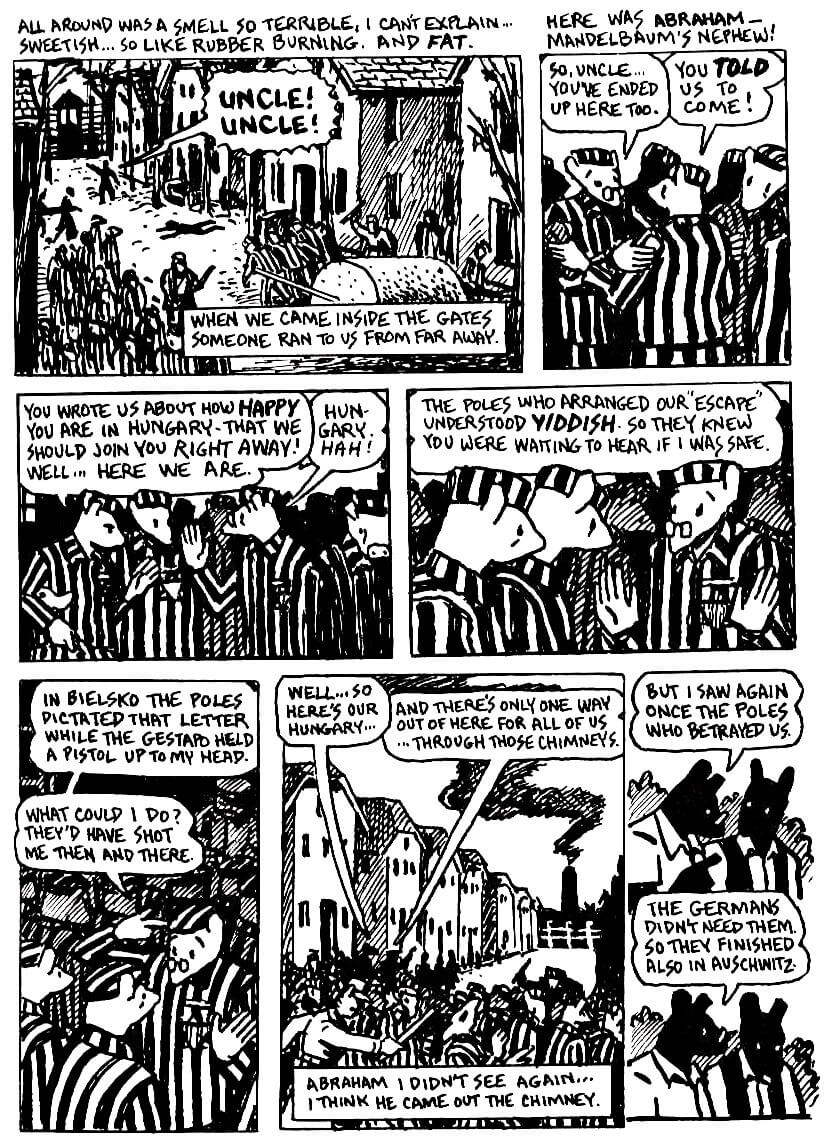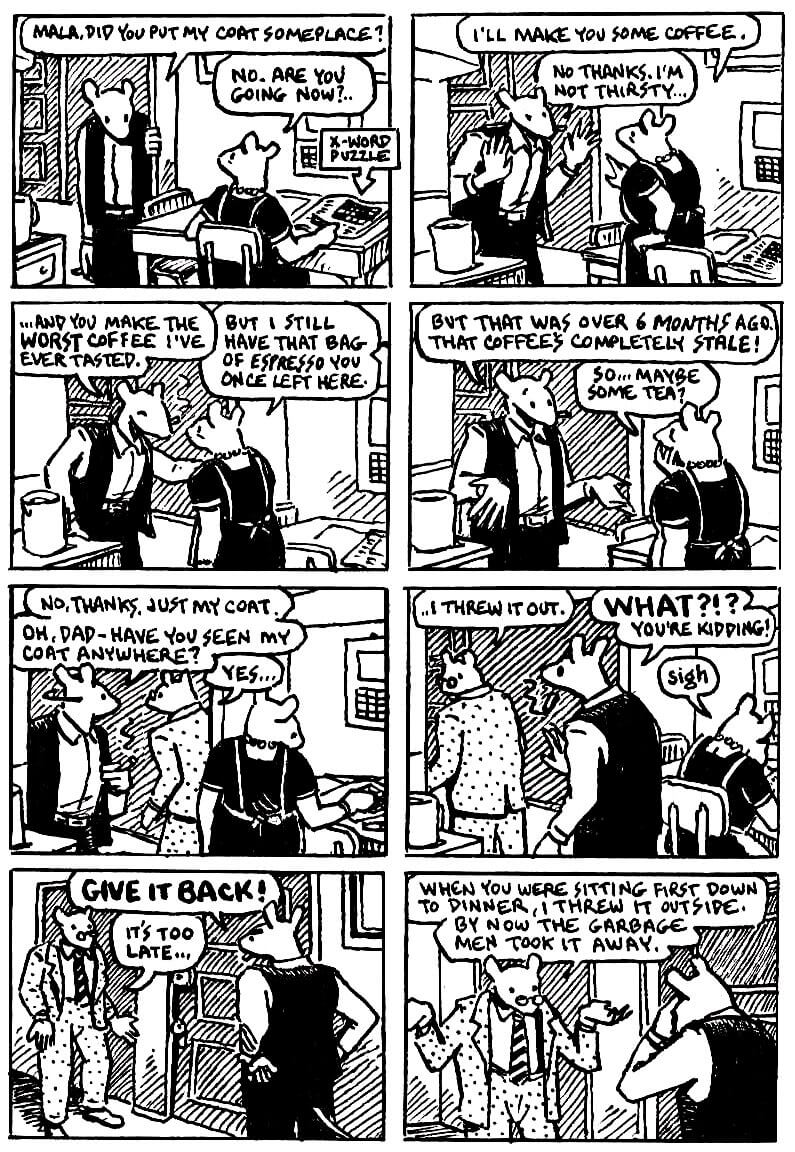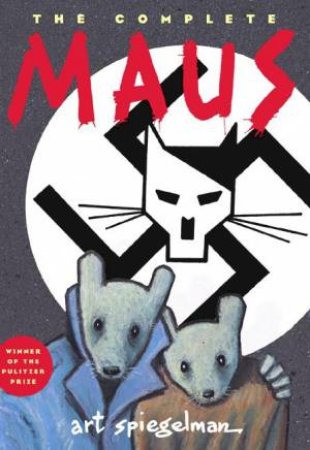
Tennessee is among the bottom 10 states in per pupil education spending.īoard members meeting on January 10 argued that the Spiegelman book was not “age-appropriate,” although it has been taught to middle schoolers for decades to describe the atrocities of the Holocaust.īoard members said they wanted to protect young minds from what they are exposed to every day on social media and cable television. It is poor and rural, and its students have a lower reading proficiency, like most of Tennessee, than the national average. McMinn County, with a population of about 50,000, lies in the southeastern corner of Tennessee, close to Georgia and North Carolina. The book, which has been translated into some 30 languages, is widely regarded and used in middle school and high school curricula across the United States and internationally, including in other school districts in Tennessee.

The novel was the central text used for a module on the Holocaust. In Maus, the author uses the comic-book format to represent various ethnicities as different species of animals (Jews are depicted as mice, Germans as cats, Poles as pigs, Americans as dogs, English as fish, etc.). Spiegelman’s work powerfully depicts the experience of the author’s family during the Holocaust. This article was amended on 6 February 2022 to correct a misspelling of Spiegelman in the subheading.Last month, the school board in McMinn County, Tennessee, voted unanimously to remove Art Spiegelman’s Pulitzer Prize-winning graphic novel about the Holocaust, Maus: A Survivor’s Tale (1986), from its 8th grade English Language Arts curriculum because of eight words they judged to be inappropriate, such as “bitch” and “god damn,” as well as a nude image. “This week has been like, ‘Well, who’s the snowflake now?’” said Spiegelman. The conceit that the left consists exclusively of nosy schoolmarms, while the right is united in first amendment patriotism, has surely been rendered counterfeit by now. I hope that dawning reality adds some clarity to the culture war, which is why it’s reassuring to watch Maus blast off to the top of the sales charts. “That would be the end date of anything they need to do to publicize the book.” “You know how they publish book galleys before books are published? On the back of them it says, ‘Published April 3’ and a list of things that’s being done to publicize the book? I see a future where it says, ‘Published April 3, banned May 12,’” Spiegelman said. Maus, with its apparently shocking depictions of unclothed rodents, is selling out in bookstores across the country.
#Maus graphic novel code
… We wanted to topple every article of the Comics Code if we could.” “We as cartoonists of that generation loved the salacious, raucous, uninhibited expression of id. “There were literally parents and clergymen gathering comic books from kids and burning them in bonfires,” he said.

Spiegelman says that he and his peers drew much of their rage from the rampant censorship campaign that targeted the comics industry in the 1950s – a time when, due to federal pressure, publishing houses instituted the Comics Code, which repressed even the teensiest adversarial tone in the work of mainstream cartoonists. The work that birthed from that era was truly brazen – depicting drugs, violence and sex, with a thirsty anticipation for backlash.

He was a fixture of the 70s Bay Area underground comix scene, rubbing shoulders with world-renowned provocateurs like Robert Crumb and Gilbert Shelton. I thought that was a conversation that had to take place.īorn in Sweden after his parents were liberated from Auschwitz, Spiegelman grew up in Queens, New York, and began cartooning before he reached high school. Let them march, and if there’s any more trouble, stop them. “The ACLU lost a lot of members because they defended their right to march,” he said. As a teenager, Spiegelman found himself siding with the right of Nazis to march in Skokie, Illinois, a town with a significant population of Holocaust survivors.

#Maus graphic novel free
Though the board cited the graphic novel’s use of non-sexual nudity and light profanity in defending its decision, the ban is part of a wave of scholastic censorship in the US, largely led by an agitated conservative movement and targeting books that deal with racism or LGBTQ issues.īut the author of the Pulitzer prize–winning graphic novel, which tells the story of his parents’ experience as Polish Jews during the Holocaust, traces his own free speech radicalism to a very different inflection point in America’s censorship wars. The latest permutation came last week, when the McMinn county board of education in Tennessee voted to remove Spiegelman’s 1991 Holocaust memoir, Maus, from its middle-school curriculum.


 0 kommentar(er)
0 kommentar(er)
